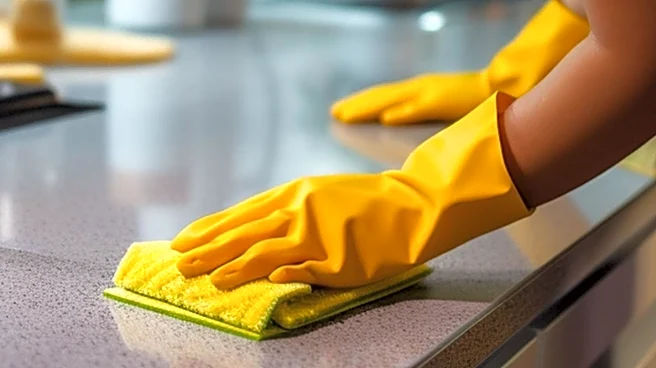What's Happening?
Microbiologists have highlighted several common kitchen cleaning mistakes that can lead to hygiene issues and potential health risks. These include using incorrect water temperatures for dishwashing, which can affect the effectiveness of cleaning. Experts suggest that while hot water is known for its disinfectant properties, it should not be so hot that it causes discomfort and leads to rushed cleaning. The ideal temperature range for dishwashing water is between 105 and 140 degrees Fahrenheit. Additionally, the use of soap and scrubbing is crucial for removing harmful microbes. Another common mistake is washing dishes in a dirty sink, which can harbor foodborne germs due to food debris and moisture. Proper cleaning and maintenance of kitchen sponges are also emphasized to minimize bacterial growth.
Why It's Important?
Proper kitchen cleaning practices are essential for maintaining hygiene and preventing foodborne illnesses. By avoiding common mistakes, individuals can ensure their kitchen remains a safe environment for food preparation. This is particularly important as the kitchen is a central part of daily life, and poor cleaning habits can lead to health risks. Understanding the correct methods for cleaning can help reduce the spread of germs and improve overall kitchen safety. The advice from microbiologists provides valuable insights into effective cleaning techniques that can be easily implemented in households.











